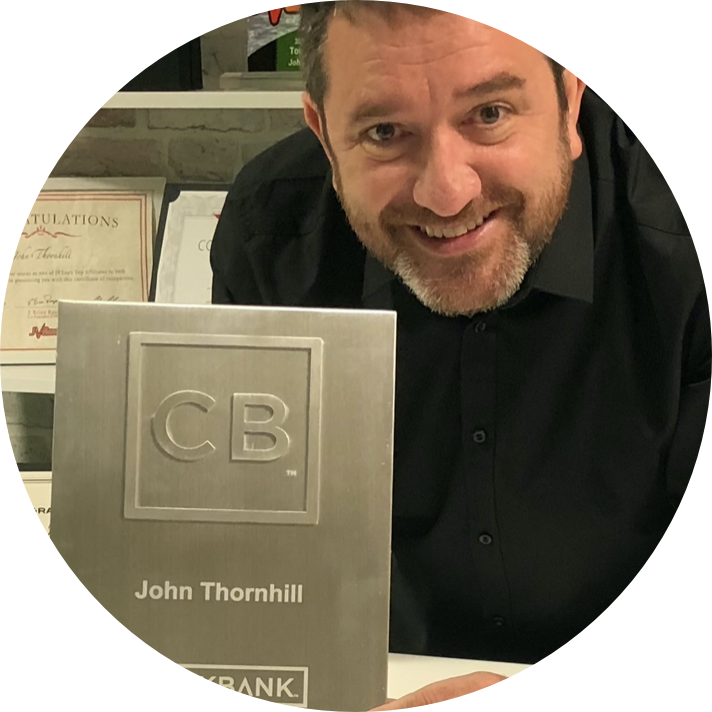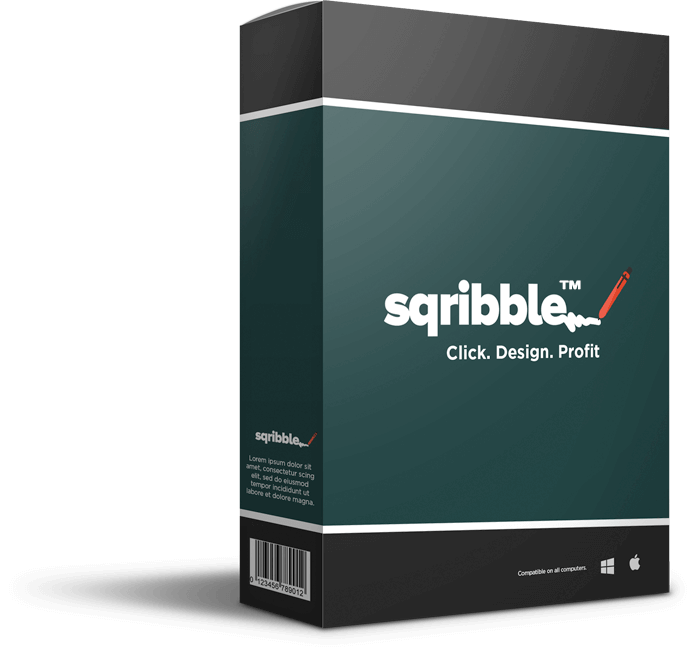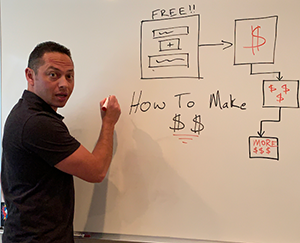Why AI Isn’t Replacing You—It’s Freeing You written by Jarret Redding read more at Duct Tape Marketing
The Duct Tape Marketing Podcast with Keith Lauver In this episode of the Duct Tape Marketing Podcast, I interviewed Keith Lauver, a serial entrepreneur, product launch expert, and founder of Atomic Elevator—an AI-powered marketing company behind Ella, a high-definition marketing platform. With six startups and over $34 million in product launches under his belt, Keith […]
Why AI Isn’t Replacing You—It’s Freeing You written by Jarret Redding read more at Duct Tape Marketing
The Duct Tape Marketing Podcast with Keith Lauver
In this episode of the Duct Tape Marketing Podcast, I interviewed Keith Lauver, a serial entrepreneur, product launch expert, and founder of Atomic Elevator—an AI-powered marketing company behind Ella, a high-definition marketing platform. With six startups and over $34 million in product launches under his belt, Keith brings a sharp, practical lens to how AI can be used to transform marketing and business operations—especially for small business owners and agencies.
During our conversation, Keith broke down the real-world applications of AI marketing and how it’s not here to replace people—but to remove bottlenecks, automate repetitive tasks, and unlock creativity. By shifting the way we think about tools like ChatGPT and agent-based workflows, Keith challenges small businesses to stop treating AI like search and start viewing it as a team of collaborators. He also shares how his own company operates without a traditional org chart—thanks to the power of strategic marketing tools and automation.
Whether you’re leading a team, launching a new product, or running a solo consultancy, this episode offers a practical look at how AI and marketing automation can help you grow smarter, leaner, and more focused.
Chapters:
- [00:09] Introducing Keith Lauver
- [01:52] Understanding the Practical Uses of AI
- [04:17] What are AI Agents?
- [07:45] How Does AI Affect Organizational Structure
- [11:46] AI Doesn’t Change Human Value
- [16:22] Personalized Marketing
- [17:37] Ella AI
- [21:22] Privacy Concerns with AI
More About Keith Lauver:
Check out Keith Lauver’s Website
Connect with Keith Lauver on LinkedIn
This episode of the Duct Tape Marketing Podcast is brought to you by
Want to elevate your marketing game? AdCritter pairs Connected TV ads with precise digital retargeting to drive real results. Discover how their full-funnel strategy can help your business grow smarter. Let them know Duct Tape Marketing sent you, and you’ll get a dollar-for-dollar match on your first campaign! Learn more at adcritter.com.
John Jantsch (00:00.923)
Hello and welcome to another episode of the Duct Tape Marketing Podcast. This is John Jantsch. My guest today is Keith Lover. He is a serial entrepreneur and marketing expert who has founded six companies, raised over $34 million for product launches and now leads Atomic Elevator. His team specializes in product launch support and created Ella, a pioneering tool for high-definition marketing.
He started his entrepreneurial journey at 14. He secured clients like Trader Joe’s, Whole Foods, and inspires others as a speaker and mentor. We were just talking about it. He lives in Red Lodge, Montana, active community in community service through Young Life. So Keith, welcome to the show.
Keith Lauver (00:44.526)
Thanks so much, John. Good beer.
John Jantsch (00:46.172)
So what did you do at 14?
Keith Lauver (00:48.026)
my gosh. So I had the opportunity to, build a software platform for an airport in Billings. was painting pipes in the summer and they found out I knew something about computers. And during the regular smoke break time, I started creating a database to keep track of the paper towels and other inventory got invited upstairs. That turned into an invitation to build the software.
John Jantsch (00:56.883)
Ha
John Jantsch (01:09.907)
Ha
Keith Lauver (01:14.862)
And apparently KPMG had offered him a bid for about $20,000. I said I’ll do it for two and they took it. So that was the very first commercial client I had.
John Jantsch (01:26.547)
Well, I think I started my first business when was 16. It was not nearly as glamorous. I was going door to door convincing people to let me seal their driveway. I paid my way through high school and college doing similar things.
Keith Lauver (01:32.723)
my gosh.
Keith Lauver (01:38.016)
That’s.
Keith Lauver (01:44.072)
I think the idea of asphalt going down and paint going up, we do what we have to do. I just caught a lucky break that day, right?
John Jantsch (01:47.347)
So we, we’re going to talk about, AI a lot today. I think, it’s a hot topic. It’s probably the hottest topic going right now. I, have, in fact, I’ve started a group I call practical AI for marketing. because I think it’s just a lot of, with any technology, there’s all this futuristic talk of what it can do.
or what it, you know, is going to do someday. And I really liked always bring it down to, okay, that’s great, but what should it do? So in terms of, of your conversations with smaller businesses, how do you help them see the practical uses of AI and not sort of the robots running the world, you know, future.
Keith Lauver (02:25.271)
Yeah
Keith Lauver (02:40.046)
You know, one of things that I like to do is separate the application side of things from the construction side of things. And I think there’s a lot of people that are confused about that, John. think, you know, I’m reminded of a workshop that was being done for business owners in Montana a couple of weeks ago, and they brought in a prompt engineer and machine learning expert for the day to teach them how to do stuff that most of them really didn’t care about and frankly didn’t understand.
John Jantsch (03:06.557)
Right?
Keith Lauver (03:08.738)
that that was what was going to be the topic. So don’t think people even know what this beast called AI is. So there’s people who are building tools and then there’s people who are actually using tools. And those two probably need to be separated before I could even answer the next part of your question.
John Jantsch (03:25.029)
Yeah. Well, first off, then let’s back up a little bit. What percentage of businesses, business owners, people working for businesses, do you think are actually using even a simple interface like chat GPT?
Keith Lauver (03:37.888)
I think every business owner I’ve talked to has at least experimented with and tried chat GPT. When we take forms on our website, we ask them how frequently are they using it? And I would say that probably a quarter of them aren’t using it more than once a week. And that’s surprising to me. They still haven’t found that thing. And if I might offer a hypothesis about why, I think we are used to something like Google where
John Jantsch (03:55.847)
Yeah, yeah.
Keith Lauver (04:06.978)
You type in a search and a computer gives an answer. And AI’s potential is so much different than that. But most people are sitting down and thinking about this as a search tool and maybe a little bit smarter search tool. And they’re just not sure what’s beyond that even at the application layer.
John Jantsch (04:25.757)
So one of the things that, I don’t know, I, you you talked about bringing in this, large language model expert to talk about things and like that just goes nowhere with the business owners. So I’m going to bring up agents, which, know, maybe we have to kind of break down a little bit, but that’s one of the areas where people are like the future’s coming. You’re going to have, you know, agents replacing all of your people. We don’t actually have agents yet. Not really.
because there’s a lot of things that I think are going to happen, over, mean, I think we’re going to have some simple task bots. but, but, but the one that people throw out, tell your agent to book me the best ticket on this flight, you know, blah, blah, blah. Well, they’ve got to have access to all the data, all the airline things. And those people aren’t going to share that information. Or if they do some big tech company, it’ll be the one that does the interface and we’ll just be a product of theirs like Facebook.
Keith Lauver (05:20.994)
Okay.
John Jantsch (05:23.973)
and not, not a user. talk, I just went and rambled all over the place there, but talk a little bit about, you know, the, the, where we are now with agents, what agents are, guess, where we are now and really what is going to be a hurdle to this large scale adoption.
Keith Lauver (05:41.516)
Yeah. So as I understand and use agents, they basically are bots, you will, programs that can perform a discrete task and do so in repetition and kind of string those tasks, perhaps one to another, to another. And instead of like right now, if you sit down and chat GPT and say, Hey,
John Jantsch (05:49.203)
you
Keith Lauver (06:02.926)
you know, can you give me input about a story or can you review this website and tell me the pros and the cons of it or whatever the query might be, an agent can actually do something that’s much more complex and a series of steps. So it might be, can you build me an entire website? Right? And step one is this and step two is this and step three, I think where agents are today,
John Jantsch (06:18.621)
Yeah, yeah, yeah, yeah.
Keith Lauver (06:27.538)
is still very much in the experimental world. I love the fact that as a company that’s created a platform, we now can begin to move our entire architecture into what they’re calling agentic. So we’re able to take what we were finding other ways of doing and we can now do it better and easier because most of the things that we need to have done are complex and require more than one step and agents will help us do that.
John Jantsch (06:40.883)
Mm-hmm.
John Jantsch (06:53.757)
Yeah, no, there’ll be a lot of stringing these things together too, right? You complete this task and then go give your output to this agent who then has been trained to do X, right? I mean, is that kind of another way to look at it?
Keith Lauver (06:57.55)
for sure.
Keith Lauver (07:02.487)
Yeah.
I love that vision, John, that really interoperability of agents. It’s like, why not have the thing that’s really good at X talk to the other thing that’s really good at Y and talk to the other thing that’s really good at Z. In the field of marketing, of the analog metaphor, if you will, would be the branding person who just is the wizard in the marketing world, right? They’re able to just say, this is the emotional state that we’re going to evoke for people.
John Jantsch (07:12.179)
Right.
John Jantsch (07:31.123)
Mm-hmm.
Keith Lauver (07:34.254)
pontificate on that. And then you’ve got the designer who tries to interpret that. And then you’ve got the copywriter who actually puts words to it. And then you’ve got the HTML person who has to construct it. And then maybe you’ve got somebody that needs to be the messaging architect that’s thinking about it. And then the performance person, we get all these different things. Wouldn’t it be great if those could all be strung together?
John Jantsch (07:56.731)
Yeah. And I think that’s a, maybe that’s a little bit of the dilemma of how people, when they’re thinking about embracing AI in general is that, you know, one, one vision I’ve seen is, the org chart that has maybe those, those analog managers, if you will, is that what we’re to call people now? Analog managers. but that, but then each of those people will have three agents that help them do their function.
Keith Lauver (08:14.83)
I hope so.
John Jantsch (08:24.371)
and they’ve all been maybe specifically trained on a thing, but then I’ve also seen people say, no, we’re going to have, we’re going to have the data analysis agent. That’s going to go across department. you know, how do you, how do you see the org chart of the future?
Keith Lauver (08:39.266)
You know, I think, the org chart of the future is probably going to be as diverse as organizations of the future. think models, what’s beautiful about what’s happening in this world is the models can be completely novel. can create things that have never before been seen. An example is, you know, we have been building our go-to-market plans using our software itself. We haven’t needed really a marketing department. even haven’t had to do.
John Jantsch (08:40.305)
Peace.
John Jantsch (08:56.466)
Yes.
Keith Lauver (09:08.352)
advertising in a traditional way. Most of our team is fully fractional and we can all cooperate and actually perform at a much higher level for a lot less money. And I don’t even know what an org chart is. We had a potential investor asked us to build one and I’m like, we haven’t, we don’t even have one for our company. It’s just not the way we operate. We kind of collect around tasks and bring expertise to those tasks and then perform those tasks.
So it’s just a very different organizational model that we’ve chosen. And I think there’s a lot of freedom in how people are going to build the company.
John Jantsch (09:43.827)
But see, I hear an org chart in there. It’s just way different than anything we’ve been taught. So I think it’s still, because an org chart to me is not people doing jobs. An org chart is what functions need to be done. And so I think that’s kind of what you’re describing, but we’re all just used to this is our head of that and this is our VP of that. And I think that that whole, that’s what’s interesting about it. think what’s going on is it’s not just like,
Keith Lauver (09:48.878)
Yeah, yeah.
Keith Lauver (09:57.516)
Ooh, I love that. Different, yeah.
John Jantsch (10:13.405)
How do we augment what we’re already doing? It’s how do we rethink everything, right?
Keith Lauver (10:18.772)
I love the freedom. think the moment, when we accidentally discovered this idea that turned into this platform for marketing, call Ella, when this was not an intentional discovery, it was pure accident. And in that moment, every single neuron in my brain fired every pattern from that 14 year old kid who wrote the software for that airport and Billings to the guy who’d been a student of marketing for the last decade fired and said, wait a minute.
I can do this differently now and I can ask this question in this way and get a completely different perspective than the old model was go to the expert. If we invert and put all the experts into a model, it shifts and everything changes. And I’m addicted to that innovation. So I think it’s wonderful.
John Jantsch (11:07.633)
Yeah. Yeah. So, one of the certainly themes that is prevalent is that this technology is going to replace a lot of people. mean, every technology does, right? I mean, or at least changes, you know, what those people do. Where do you fall on kind of the, it’s going to revolutionize industries, replace a lot of people, augment, you know, lot of the value we can bring. I mean, where do you fall on that?
Keith Lauver (11:20.814)
you
John Jantsch (11:37.867)
continue.
Keith Lauver (11:39.342)
So yes, yes, and yes. I do think that AI is going to transform, to augment, to replace. But I don’t think that changes our sense of self. I don’t think that changes our value of fact. If anything, for me, what it’s done is created more freedom around that. I talked to so many people on our team. We’re avid minute by minute users of AI.
John Jantsch (11:41.391)
Yeah, OK.
John Jantsch (11:50.034)
Yeah.
Keith Lauver (12:08.974)
We’re more confident in what we can do and in the gifts that we’ve been created to bring to the world because we augment the things that maybe we’re not as good at. I’m a visionary, I’m not an integrator. So I see big ideas and when you ask me to actually turn that into a you know, a set of sequential steps, I just, my brain hurts. I don’t like that work and I don’t have to do that work anymore. So.
John Jantsch (12:13.939)
Mm-hmm. Mm-hmm.
John Jantsch (12:35.795)
Yeah. Peace.
Keith Lauver (12:36.246)
I think it’s not replacing people, but it’s replacing some of the things that we as people have done. And what that does is gives us the freedom to go back to what is our zone of genius? What is our superpower? What is it that we love to do? And I don’t think AI will ever replace humanity. I think it’s just bringing us up to be the very best versions of ourselves.
John Jantsch (12:41.317)
Yeah.
John Jantsch (12:57.395)
Well, it’s interesting because I certainly, I’ve always, you know, from a marketing standpoint, we’ve, our monitor has always been strategy before tactics. Um, and I think that in a lot of ways that makes the strategic thinker who can also master AI, who also understands marketing operations. That’s the job of the future, isn’t it? As opposed to the agency that comes in and does the stuff.
Keith Lauver (13:22.06)
I think that’s right. I would say our focus has actually been trying to go in and provide even greater effectiveness and efficiency for the strategists. And so because of that, I see a world where AI can actually do a lot of the strategy when well-guided and augmented by humans through that. I would say for me, as I’ve contemplated kind of my own work shift in the last, say, year, most of my time is now relational.
And that can’t ever be replaced by AI. Most of my time is getting to understand people and their problems and then finding a way to bring that in. But I’m not spending time on strategies so much as I am building relationships that allow my tools to build that strategy. So I think that’s a higher level.
John Jantsch (14:12.413)
Yeah.
Well, there’s such a, even though it’s more one-to-one, there is such a brand aspect to that. There is such a trust aspect to that. And I think that those are the things that are really going to allow the, if there’s going to be winners and losers, I think people that get that, think are going to side on the win.
Keith Lauver (14:23.063)
Ooh, I love that. Yeah.
Keith Lauver (14:33.326)
You know what I love about what you said there too is just kind of reminds me of the benefit to AI in getting us out of ourselves that if we’re going to be able to establish trust, one of the ways that I do this today that I did in 12 months ago is I talk about the fact that I run everything I do through a blind spot and a bias detector. I run everything I do through the lens of our software.
that can look at 100 different marketing people’s perspectives. And that actually increases my trustworthiness, my credibility with somebody because I’m actually admitting my own limitations.
John Jantsch (15:05.811)
Mm-hmm.
John Jantsch (15:16.339)
Yeah, yeah, that’s one of my favorite prompts is like, what should I be asking you? Or what am I not asking you? You know, that kind of thing, you know, or, or I sometimes have to say, stop agreeing with me. That’s a brilliant idea.
Keith Lauver (15:24.43)
Yeah.
Yes. I like to think that my AI is sometimes a little bit too puppy-like. You know, it just wants to wag its tail and say, yes, Keith, I love you. Will you rub my belly? It’s like, yeah. Exactly. It’s like, no, no, no. Or even when I ask AI to be to go do something and the end result, if I say, is this biased? And she says, yes. I’m like, well, why did you do that in that way in the first place? So.
John Jantsch (15:54.021)
Right. So, so, I have one more question, but I really do want, we haven’t, I want to spend some time on what you’re doing specifically with Ella because it relates to everything we’re talking about. But, one of the things that, anybody who says the five things that are coming this year, you know, personalization in marketing is, certainly a buzzword that’s going to be on that list all the time. is, is, and it seems AI can help that.
But I also don’t see a lot of people doing it yet. And is the real missing ingredient is it can’t personalize without access to data.
Keith Lauver (16:33.304)
think that’s a great insight. think I would challenge how much data we can give it access to. would say in general, I’ll give you an example. I love what there’s a tool called Crystal Nose has done, which is they’ve used AI to go, you know, essentially determine somebody’s personality. And that gives you a degree of personalization to present information in a particular style. So for example, anytime I do a sales follow-up,
I run it first through Crystal and I have Ella rewrite it to that person’s disc profile. And that gives me a level of personalization that’s not just this was the conversation we had, but this is who you are and how you probably prefer to receive information. So I think we’re getting closer to it.
John Jantsch (17:17.169)
Yeah. Yeah. And it might just be bullet points and short sentences as opposed to, you know, necessarily, hi, John. Exactly. Right. Right. So talk a little bit about Ella. If somebody came to you and said, what’s Ella?
Keith Lauver (17:26.321)
Yes. Exactly. These are the three things we talked about. Sign here.
Keith Lauver (17:38.86)
Yeah, so we describe Ella as a high definition marketing machine. And the reason that we’ve chosen to describe her that way is we have found as professional marketers that most marketing has historically been very fuzzy. The fuzziness has been caused by specializations and fragmentation, right? The fuzziness has been caused by shifts in tactics and expectations. And the fuzziness is the fact that at the end of the day,
Most marketing is really a hypothesis that needs to be tested out there anyway. So it’s social science, it’s behavioral science. And so what we’ve said is let’s try to provide more pixels to the picture. Let’s take frameworks and connect them. Let’s take pictures and define them in greater resolution. Let’s interconnect them so that when somebody says, I want to talk to John about duct tape marketing,
John Jantsch (18:10.515)
Yeah.
Keith Lauver (18:34.37)
they’re able to do so with just a high degree of precision. So Ella is a tool that enables better messaging, more discrete personas, and essentially better results because of this high definition process.
John Jantsch (18:49.907)
Yeah, boy, will say, you you used a fate, one of my favorite words, frameworks. Um, you know, one of the best things you can do if you’re trying to get some sort of output out of, uh, out of an AI tool is, is to say, use this framework, uh, that’s well-defined. think at least it gives it some guardrails to say, okay, you know, I’m not just going to write something that hopefully sounds good. You’re going to write something that.
Keith Lauver (19:04.216)
Yes.
John Jantsch (19:14.875)
maybe is using a proven framework. And so it’s going to be more effective right off the bat, whether or not the outputs, know, word for word, what you’re going to use, at least the structure will be there.
Keith Lauver (19:18.093)
Yeah.
Keith Lauver (19:25.538)
Yeah, I think frameworks, you know, I got drawn into the idea of frameworks because I was a computer guy who fell into the field of marketing, right? I’m used to here is a subroutine. If you’re going to tell a story, here’s seven blanks to fill in. Donald Miller, thank you for giving me the seven blanks to fill in. Like I need that kind of thing. And what has been true about all the frameworks, at least that I’ve experienced is while fantastic, they’ve always been discreet.
John Jantsch (19:32.541)
Yeah. Yeah, yeah.
John Jantsch (19:44.381)
Yes, exactly.
Keith Lauver (19:55.008)
and probably more unitaskers. So they’re fantastic for one thing, but they are often missing another thing. And what, least in my mind has been the missing link to all of this is a unifying, almost marketing operating system that pulls all those frameworks together. And that’s the big aspiration for what we’re trying to build.
John Jantsch (19:59.675)
Yeah, yeah.
John Jantsch (20:16.817)
Now, are you staying very focused on the niche market of, and I thought I read this, of SaaS go to market, or are really putting yourself out there as any type of business or industry?
Keith Lauver (20:27.21)
yeah.
Keith Lauver (20:31.756)
Yeah, we started in the field of SaaS. Obviously, we are too a SaaS product and understand those frameworks very well. But as Ella has so quickly grown, people are contributing their own frameworks. We’ve got authors who are saying, use mine. Or we’ve got practitioners who say, have you heard about this amazing system called duct tape? And I’m like, yes. Yes, I have. And so we’re trying to integrate those. And so
John Jantsch (20:36.147)
Sure.
John Jantsch (20:47.251)
Sure. Right.
John Jantsch (20:52.999)
Hehehehehe
Keith Lauver (20:58.988)
The idea of Ella is she can help with B2B, B2C, really across industries. And she’s getting smarter every single time somebody uses her and at least volunteers their feedback to Ella.
John Jantsch (21:13.619)
So one question that comes up a lot of times and will probably be continued to be debated forever, but are there privacy concerns? You know, I’m sharing all of my personal company data. that something or, or, you know, as an agency, I’m sharing my clients data. Is that an issue with a model like, or a tool like Ella?
Keith Lauver (21:36.64)
It is an issue for all AI and Ella has decided to respond to that with kind of a very clear privacy policy, a very clear non-disclosure agreement that we enter into, and also very clear technical parameters where we have opted out underlying our tool is OpenAI, but we have basically disallowed OpenAI from using any prompt
for training purposes, any prompt for storage purposes. And so we can say with confidence that we are protecting the confidentiality of that information. And I think it is important that we do that.
John Jantsch (22:15.461)
Awesome. Yeah. Yeah. Yeah. I think that’s going to be, you know, a raging debate for some time. And I think we’ll end up having, won’t we end up having the same thing that happened to the search engines, that, you know, the, the, all the privacy and all the stuff that they’re, they’ve been doing and not telling anybody. We’ll, we’ll come back to in lawsuits probably.
Keith Lauver (22:35.31)
I am excited to see how intellectual property will continue to evolve around all of this. But in the meantime, we’re going to let people do great work and keep what they’re doing private.
John Jantsch (22:38.291)
Yeah. Yeah.
John Jantsch (22:47.155)
Well, Keith, I appreciate you taking a moment to stop by the Duct Tape Marketing Podcast. Is there someplace you’d send folks to learn more about Atomic Elevator and your work?
Keith Lauver (22:56.652)
You bet, AtomicElevator.com and we’ve got free trials available. We’d love to sign up anybody. Let them take Elifer spin for a couple of weeks and see what kind of impact you can make for their clients.
John Jantsch (23:08.627)
Again, appreciate you taking a moment and maybe I’ll run into you one of these days next time I’m up in Montana.
Keith Lauver (23:15.713)
I hope that would be the case.
Sign up to receive email updates
Enter your name and email address below and I’ll send you periodic updates about the podcast.
Recommended Story For You :

How To Make $3493 Commissions Without Doing Any Selling

Successful dropshippers have reliable suppliers.

People Think I Use A Professional Voiceover Artist. NO! I Just Use Speechelo!

Make Money Testing Apps On Your Phone Or Tablet

Make More Money or Lose Everything

Sqribble Is The ONLY eBook Creator You’ll Ever Need.

Work & Earn as an Online Assistant

Create Ongoing Income Streams Of $500 To $1000 Or More Per Day

It's The Internet's Easiest Side Business.






